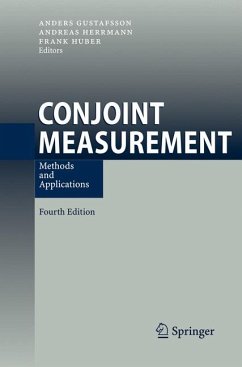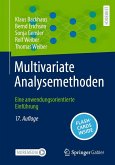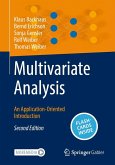Dieser Download kann aus rechtlichen Gründen nur mit Rechnungsadresse in A, B, BG, CY, CZ, D, DK, EW, E, FIN, F, GR, HR, H, IRL, I, LT, L, LR, M, NL, PL, P, R, S, SLO, SK ausgeliefert werden.
"The aim of this book is to reflect the substantial research and recent developments done in Conjoint Analysis. Leading scientists present theory, models and applications to marketing and business research. This book of 21 essays contains latest developments in conjoint modeling, a number of comparisons and cross validation studies." (Edward M. Psyadlo, Zentralblatt MATH, Vol. 1059 (10), 2005)









